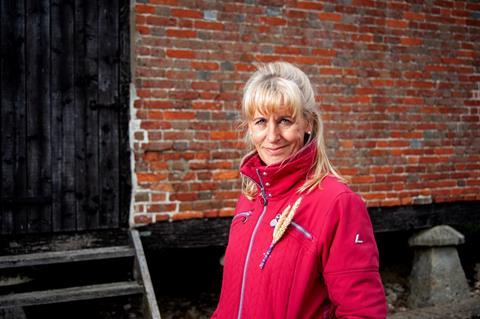England’s farming union addresses urgent food production issues with political leaders at annual conference
As political parties gear up for a general election, the NFU is asking which party will back British farming and deliver the right plan for British food.

The NFU says it will address farmer concerns, such as high production costs, crop losses and future uncertainty due to changing government policy, directly with political leaders at its annual conference in Birmingham on 20-21 February.
In her opening address today (20 February), NFU President Minette Batters will highlight the solutions put forward in the NFU’s general election manifesto and the need for all political parties to commit to giving food security the same strategic priority as energy security, and sustainable food production the same ambition as legislated environmental targets.
Speaking to more than 1,500 farming, political and stakeholder delegates, Batters will say: “This election will be critical to the future of farming and the food on our supermarket shelves, in our pubs, hotels, bars and restaurants.
“There is a reason why countries invest in food production. It is to mitigate risk and volatility for consumers and give farmers the confidence to keep producing food. But global events have challenged British agriculture, adding to the instability and volatility farmers and growers are facing, when what they really need is certainty.
“That’s why I ask today, which political party will have the right plan for British food? Which party will deliver the core standards that ensure food imports meet the same high values of animal welfare and environmental protection as those which British farmers are expected to meet? Which party will be the first to set a target for food production with a statutory underpinning?
”Because there is currently an imbalance between environment and food production in government policy. We must see changes this year to redress this before many more farms just simply disappear.”
Batters will continue: “When the NFU of England and Wales said we can beat the government target on lowering emissions, it was by driving climate-smart agriculture policies and incentivising lower emissions, optimisation, innovation and precision farming. Focusing on producing more food with less impact.
“Yet the Welsh Government impact assessment for the Sustainable Farming Scheme predicts 122,200 fewer livestock, 5,500 job losses and £199 million loss to farm incomes. That is a red line and we will never support it. We will sit at the same table and find a solution.
She will add: “Extreme weather has also hit British agriculture hard. As we speak, many parts of the country remain flooded. Some winter crops didn’t get planted and some of those that did have been washed away. In places, sugar beet and potatoes remain rotting in the ground. And many of our food producing floodplains have been used to store water to protect houses and businesses.
“We must pay farmers for storing flood water on their land. We must speed up planning for on farm reservoirs to store water for crop irrigation. Water security must underpin national food security.
“On supply chain fairness, there is no silver bullet. While there’s no doubt that the Groceries Code Adjudicator (GCA) has transformed the way disputes between supplier and retailer are conducted and resolved, there are still many of our members who will not raise a complaint for fear of being de-listed by supermarkets.
“We need a Blueprint for Action. My suggestion is that the GCA survey of suppliers is used to create a new framework. This would embed retailers’ ethical responsibilities to farmers and growers within their business’s environmental sustainability goals and corporate and social responsibility.
“We know that the British public is behind us every step of the way. In 2023, farming and growing rose to second in the list of professions most valued by the public, behind only nursing. We are immensely grateful for this support – it makes all the difference.
“It’s something our politicians should remember in the runup to the general election too. A recent survey showed that 82 per cent of British people want to see targets to increase homegrown food production, and 66 per cent said that parties’ plans for farming will be one of the issues that affects who they vote for at the general election.
Batters will conclude: “It couldn’t be clearer – progressive policies on sustainable food production aren’t just important for farmers and growers, but anyone who eats food. And it matters at the ballot box.”



